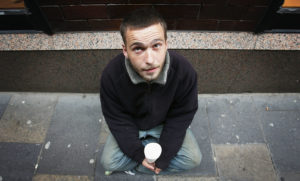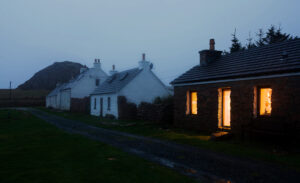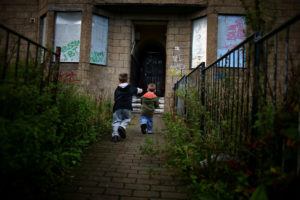You know something serious is about to go down when London lobby journos start saying things like: “We should pay attention to what’s happening in Scotland.” Many of us up here are not only resigned to our junior status in this dysfunctional constitutional family, but we lean into it, like a sunburnt drunk leans in to embrace a cactus. And while we’re always slightly bashful at the prospect of any unusual spike in attention, we understand that the interest will be short-lived. For it is always the case that eyes in London only turn in a northerly direction on those rare occasions when whatever’s happening up here may have some kind of impact down there.
This week, that thing was the Rutherglen and Hamilton West by-election. A two-horse race between the SNP and Labour, the result of which was supposed to offer important clues as to the direction of political travel both north and south of the border. Or at least, that’s what all the commentators and analysts were saying.
They know that the only way Labour can win a significant majority at the next UK general election is if a sizeable chunk of Scotland flips from yellow to red. And Rutherglen and Hamilton West had done exactly that on three occasions since 2010, which is why the SNP and Labour were on a war-footing there long before disgraced MP Margret Ferrier was recalled and then ousted for breaching Covid rules in 2020. Yesterday, there was a 20.4 percentage point swing back to Labour.
The two politicians fighting it out were the SNP’s Katy Loudon and Labour’s Michael Shanks. They are young and energetic. And even though relatively unseasoned, it is clear that each has already acquired the necessary affectations to bullshit their way through a live political debate. So rather than a battle of ideas, during their television debates we saw a battle of the brands fought with all the authenticity of a used-car salesman gesturing towards a smoking electric car, assuring you that “it’s a great little runner”.
We had Loudon, a South Lanarkshire councillor since 2017, pressing Shanks on his change of heart over Brexit and the two-child cap, which places not only him but Scottish Labour leader Anas Sarwar out of step with Keir Starmer. And she accused Labour of flip-flopping on its commitments, which might have landed more powerfully if only her party, in government now for longer than the Tories, were not also serial flip-floppers.
And then we had Shanks, delivering political platitudes and then failing to press Loudon on her party’s indecision over arts funding, free school meals for all kids, abolition of the council tax, and its position on nuclear weapons. He then turned on her for supporting tax hikes in a cost-of-living crisis, knowing perfectly well that the hikes would be on high earners, living in the most valuable properties — the sort of progressive taxation you’d expect a Labour up-and-comer to support.
What was utterly lacking was anything specific about the actual constituency. The whole campaign has been an exhibition of nervous insincerity. The candidates know what’s at stake; they know they’ve been pulled in off the bench in the 80th minute in the wider war between the SNP and Labour. The sheer volume of heavy-hitters who have made cameo appearances to bolster both campaigns speaks to the height of the stakes here — and to the painful truth at the heart of this by-election: the most deprived locals are merely useful pawns in a tribal game.
Swathes of South Lanarkshire — the local authority in which a decent chunk of this constituency sits — are unglamorous, grey-washed urban purgatories rendered nondescript by post-industrial malaise. Maybe that’s a little harsh. We have some wonderful partially closed Sixties swimming pools.
Poor health and poverty are also embedded across this part of the country. Three years ago, South Lanarkshire Council published public health statistics that didn’t make comfortable reading: two in three people were deemed overweight. One in three was obese. Just 19% of babies were exclusively breastfed — significantly lower than the Scottish average of 27% — and around 20% of children lived in poverty. Out of a population of over 300,000, 41,000 were income-deprived. And the poorest residents of Rutherglen and Cambuslang — two areas which fall within this well-publicised contest – were, at that time, regarded as among the unhealthiest in Scotland.
Some will argue that’s because of their poor choices. But what choices do they have when their community consists of too much traffic on too few rush-hour expressways connecting rundown retail parks to gambling facilities, charity shops and junk food outlets?
The above statistics were published before Covid. Since then, every metric by which inequality is measured is flashing red. We have bouncers on the doors of Tesco Express. Security tags on baby food. And more food banks than we have McDonald’s, all while a billionaire class enters a new space race and no politician has yet suggested taxing them upon re-entry. On the plus side, energy prices are now so high the Tories can only afford to gaslight us for another four months.
Given the level of media interest in Rutherglen and Hamilton West, the scale of political campaigning, and the partisan chatter on social media, the casual onlooker would be forgiven for thinking the contest is of great material significance to local people. They’d be wrong.
This wasn’t about Rutherglen and Hamilton West. This by-election was both a progress report on First Minister Humza Yousaf’s wobbly early spell in Scotland’s top job, and a litmus test for how a resurgent Labour may fare at the next UK election. Pundits obsessed over possible turnout: would SNP voters stay home, unenthused by the lack of movement on indyref2? Or worse still, would more moderate pro-indy supporters sense a chance to oust the Tories and, perhaps worse than staying home, vote Labour. What would become of the Tory and Lib-Dem vote, which, if combined, is significant enough to swing the result if deployed tactically? And what do Jackie Ballie, Angus Robertson, Keir Starmer and Fiona Hyslop think of it all? Utterly riveting stuff.
This was politics at its worst. There were no big ideas here. No grand visions. Even the insults rang hollow. The reason for this is simple: all that separates these two broadly progressive parties are their respective positions on constitutional issues which grow less salient by day — yet they must engage in the charade that there are profound differences.
According to the SNP, Labour are just the same as the Tories. Labour, meanwhile, wants us to believe the SNP are not the same as the Tories — they’re worse. This level of debate is worryingly disingenuous. Either these people actually believe the pish they talk — or they’re so cynical they willingly talk pish they do not believe. You would find more consistency of logic on the stands of a local football stadium. Yes, it’s politics. Yes, there are forces at play which constrain political discourse in ways that politicians cannot always control. But does it all have to be so tedious and predictable and insincere?
You can really see the draw of becoming a political diehard. Of nailing your colours to the mast and warring till the bitter end. It’s a far simpler existence. You train your eyes and ears for the errors of others, while remaining blind to your own. Behind the impressive professional facades both parties project, what we see are flawed, embittered, manipulative and often quite delusional people. There’s no craft, no skill, and no courage. Just both sides constantly trying to pin things on their opponent that they themselves have been guilty of in the past, or worse, are actively participating in as they speak.
Take the tit-for-tat over public services. The very day Scottish Labour talked up rumours of closures to local police stations, including three in Rutherglen and Hamilton West, blaming SNP cuts, the Labour-controlled council in neighbouring North Lanarkshire was forced into an embarrassing U-turn following a backlash to its planned closure of no less than 39 cultural and leisure facilities. Labour insisted the by-election was a mini-referendum on two failed governments at Holyrood and Westminster — but Labour is the party in control of both this constituency’s councils. Whether centrally controlling their parties, marginalising critical voices, or announcing policies they have no intention of actually implementing for fleeting traction in the press, the idea that one of these political shitshows has a moral high ground above the other is utterly laughable.
It suits both the SNP and Labour to portray themselves as diametrically opposed, but they’re two flaps of the same fanny. Most of us see clearly that these apparently rival factions are variants of the same essential strain of managerial centrism — both holding the belief that you can radically change society without doing or saying anything radical.
Anas Sarwar, while steering Scottish Labour assuredly through some choppy political waters, claims Scotland needs fundamental change and says he can provide it. But I’ve looked up “fundamental” in the dictionary and that doesn’t match his actions. As far as I know, he has been out chapping doors for days in the plusher parts of the contested constituency, warning those comfortable homeowners cloistered around the best-performing schools that the SNP plans to punish them by raising their council tax to something approaching fair. This, from the same Labour Party that simultaneously lambasts the SNP for failing to reform local taxation after 16 years in government.
Their campaign has involved walking the classic centrist tightrope of promising action to the poorest on poverty, while keeping the middle-class happy with the sort of perks that only entrench the inequality. Scottish Labour needs to attract the kind of people who are not worrying about multi-morbidity, or two-week waits for GP appointments, or the stigma of food poverty, or the two-child benefit cap. Being on the right side of Scotland’s educational attainment gap, and a world away from the drug death crisis, voters of this ilk, while certainly feeling the cost-of-living pinch, are not exactly hard-up. And if they vote Labour, they’ll expect something in return. They’ll expect the various mechanisms by which opportunity is distributed blindly upward to be maintained and expanded.
Conversely, the SNP is paying the price for a decade spent playing the same game. Their problems run deeper than Yousaf being less popular than predecessor Nicola Sturgeon. The tragedy is that at precisely the moment where Yousaf could legitimately claim to have moved even further to the Left than ever before — going toe-to-toe with landlords over short-term lets, pioneering child poverty payment, nationalising Scotrail and abolishing peak fares — their own base is beginning to lose interest. People are so numb after years of political capital being blown on the pretence that another referendum was imminent that, even though the SNP seems finally to be using devolved power to make a difference — safe consumption rooms, progressive taxation, and at some point in the near future, a Scottish Welfare System — many simply shrug when these achievements are pointed out.
The biggest problem both parties have, even if they end up in power at the same time, is that they are now political hostages to their own bullshit. Namely, the volatile constitutional issues of Brexit and Independence in which they are now, in their own ways, enmeshed, yet forbidden by electoral imperative from speaking honestly about.
The SNP has known for a long time that IndyRef2 will not happen soon — even the movement’s most gung-ho campaigners are placing the next referendum a firm 10 years away — yet it has engaged in the charade that it was just around the corner. Meanwhile, the party insists that because Scotland voted to Remain, we’ve been torn out of a lucrative political and economic union against our will, failing to see the contradiction at the heart of their campaign to take Scotland out of the UK without evidence that a majority of Scots actually want this to happen. The SNP wants us to believe two contradictory ideas at the same time: that Brexit is harmful to Scotland and that Independence won’t be (I’m all for indy, but I’m also realistic about the challenges it will bring).
These intellectual gymnastics are mocked and mirrored by Labour. Starmer, Sarwar and the rest of them must pretend Brexit is settled and that the shambles of leaving the EU in the hardest possible fashion has had little bearing on the UK’s dire economic fortunes — even though they understand only too well that such a tumultuous exit from the Single Market has made the very people who voted for it poorer. But Scottish Labour must also talk tough on independence to fend off the threat of the Scottish Tories, while knowing full well that the Scottish Government will always be severely constrained in the progress it can make when key issues such as immigration, labour laws and most taxes remain the preserve of London politicians.
Some might be relieved that constitutional issues were not as prominent in this by-election, but it is clear that, without the mobilising prospect of a rematch on either Brexit or a second independence referendum, Labour and the SNP will return to their comfort zones, taking their loyal bases for granted, pricing-in working class apathy, and targeting middle-class moderates whose political convictions could be written on the back of a fag packet — leaving space for all 228 lines of “Tam o’ Shanter”.
The only people actually buying what the politicians are selling are devout party activists, students yet to be disabused of their naivety, partisan hacks who study politics the way your Auntie Betty studies Emmerdale, and middle-class moderates who’ll swallow any old, reheated pish for stable house prices and a quiet two-driveway life. Nobody else gives a shit. If we can be bothered, we turn up on polling day, we hold our noses, and we vote for whichever party we believe is the least terrible option that year.
Coincidentally, the scepticism many Scots feel when London journos take a sudden interest in our affairs is precisely the scepticism many in the Rutherglen and Hamilton West constituency probably feel about the preening top-flight Scottish politicians chewing scenery in the run-up to the by-election. Working-class people here are mere beads on an abacus, their votes appropriated for some national narrative that doesn’t serve them. Today, the travelling political circus will pack up and leave without a backward glance.
Disclaimer
Some of the posts we share are controversial and we do not necessarily agree with them in the whole extend. Sometimes we agree with the content or part of it but we do not agree with the narration or language. Nevertheless we find them somehow interesting, valuable and/or informative or we share them, because we strongly believe in freedom of speech, free press and journalism. We strongly encourage you to have a critical approach to all the content, do your own research and analysis to build your own opinion.
We would be glad to have your feedback.
Source: UnHerd Read the original article here: https://unherd.com/






